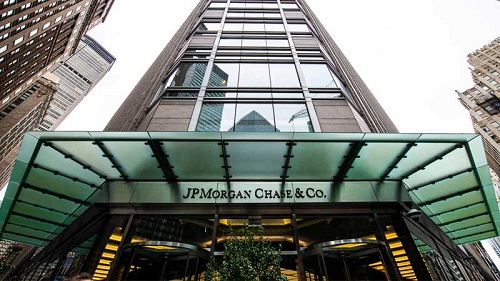In a recent revelation that has sent shockwaves through financial circles, JP Morgan has estimated Nigeria’s foreign exchange (FX) reserves to be a mere $3.7 billion. This figure stands in stark contrast to the Central Bank of Nigeria’s (CBN) reported figure of around $30 billion. The implications of such a discrepancy are far-reaching and have ignited a debate about the true state of Nigeria’s economic stability.
JP Morgan’s report, titled “Nigeria: Reform pause rather than fatigue,” shed light on the factors contributing to this alarming gap. The report attributed the lower-than-reported FX reserve to the utilization of larger currency swaps and borrowings against the reserve. The bank’s analysis disclosed that based on available information from the audited financial accounts, the CBN’s net FX reserves were estimated at $3.7 billion by the end of the previous year, down from $14.0 billion at the close of 2021.
However, it’s important to highlight that JP Morgan’s estimate is built upon certain assumptions, which, if proven incorrect, could alter the accuracy of the projected figure. The bank’s methodology involved incorporating $5.0 billion in IMF Special Drawing Rights (SDR) into the external reserves, totaling $37.8 billion. This aligned with the 30-day moving average of $37.08 billion published by the CBN. The bank further adjusted the gross external reserves by accounting for FX forwards, securities lending, and currency swaps.
Interestingly, despite the shockingly low estimate, JP Morgan’s report maintains that the CBN has the capacity to weather the pressure associated with a diminished FX reserve. The report asserts that profits generated from swap arrangements between the CBN and commercial banks will help stabilize the situation.
It’s worth noting that the Nigerian National Petroleum Corporation (NNPCL) also had to resort to external borrowing, securing $3 billion from the Afrexim bank, in an effort to bolster the nation’s FX reserve and alleviate liquidity concerns within the exchange market.
READ ALSO: CBN Removes Restrictions On Bamboo, Nairabet, AbokiFX, 437 Other Accounts
As of June 2023, Nigeria’s FX reserve had risen to $34.1 billion, a stark contrast to JP Morgan’s estimation. The report concludes by expressing cautious optimism about the future, despite the recent slowdown in reform momentum. President Bola Tinubu’s administration, which initially showcased a strong reform agenda, has had to dial back on key changes, particularly the fuel subsidy removal, due to various challenges.
The impact of these policy shifts is already evident in the financial markets. President Tinubu’s assurance that fuel prices will remain steady, contradicting the notion of a deregulated market, has rattled investors. Fears of a return to the fuel subsidy era have led to a decline of 2.5-5 points across the curve for Nigerian sovereign bonds.
JP Morgan’s forecast further predicts that the country’s headline inflation could reach a staggering 28% by the year’s end, driven by escalating food prices and the multifaceted impacts of the administration’s reforms.
In a time of economic uncertainty and conflicting reports, Nigeria stands at a crossroads. The need for transparency and accurate reporting has never been more critical, as the nation’s financial stability and investor confidence hang in the balance.
•Moses Adeolubodun is a writer living in Lagos, Nigeria.




